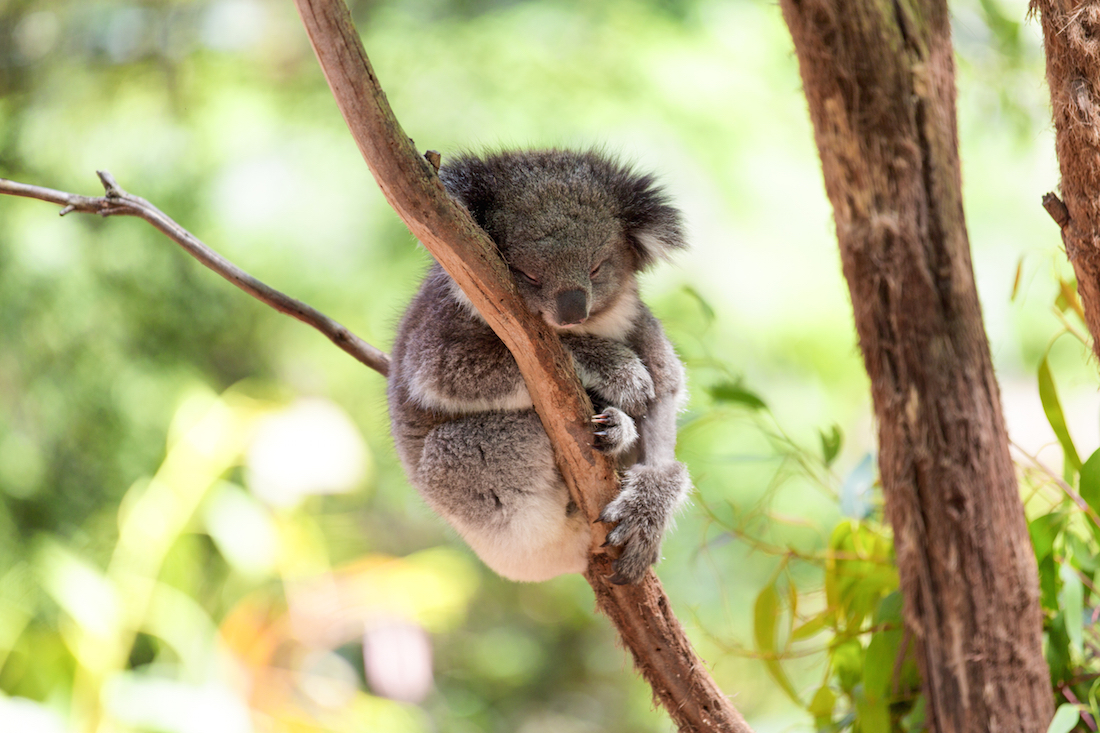Spring Daylight Saving: Lose an Hour of Sleep, But Save a Koala

This Sunday marks the 100th anniversary of daylight saving time (DST), and what better way to celebrate than by losing an hour of sleep in the morning and gaining an hour of sunlight in the evening.
The time change happens at 2 a.m. local time on Sunday (March 11) — meaning that clocks everywhere will jump from 1:59 a.m. to 3 a.m. local time.
Spring daylight saving (not savings, as some people say) means that the sun will rise and set 1 hour later on March 11 than it did on March 10. In effect, this change gives people in the Northern Hemisphere more sunlight in the evening hours. And it turns out, the change may save the lives of koalas (keep reading).
Daylight saving time was the brainchild of Benjamin Franklin, who devised the time change to conserve energy. But Franklin's idea wasn't implemented in the United States until about 100 years ago, on March 31, 1918, according to timeanddate.com.
But it's up for debate whether DST actually saves energy. The time change marginally decreased U.S. energy consumption, according to a study conducted by Stanton Hadley, a senior researcher at Oak Ridge National Laboratory, and his colleagues in 2007, Live Science previously reported. But DST increased residential energy usage in Indiana, a 1998 study found, and temporary changes in Australia for the 2000 Summer Olympics also didn't save any energy, according to a 2007 study.
Whether DST conserves energy or not, the main point is whether the extra hour of sunlight improves people's lives, Hadley said. "It's people wanting to take advantage of that light time in the evening," he noted.
But even that point may be bunk. People don't exercise more because of DST, a 2014 study in the Journal of Physical Activity & Health found. In the study, researchers compared data from residents who lived in Arizona, Colorado, New Mexico and Utah who participated in the 2003 to 2009 American Time Use Survey. Arizona does not observe DST, allowing the researchers to compare its results with those from the other states. (The Navajo Nation in northeastern Arizona, however, does observe DST.)
Sign up for the Live Science daily newsletter now
Get the world’s most fascinating discoveries delivered straight to your inbox.
Although DST didn't significantly increase activity levels in the study, the researchers noted that the research was limited to the American Southwest, and that it's possible DST would make a difference in activity levels elsewhere.
There have been a multitude of other studies on DST. Research shows that losing an hour of sleep in the spring is associated with a spike in heart attacks, Live Science previously reported. The time change is also associated with more workplace injuries, increased cluster headaches and more cyberloafing, Live Science reported. People also tend to miss more medical appointments during shifts to and from DST, a 2017 study in the journal Chronobiology International found.
But there is this silver lining: DST may decrease the number of koalas killed by motorists in Australia, according to a 2016 study in the journal Biology Letters. That's because wild koalas (Phascolarctos cinereus) are nocturnal, and most vehicle accidents with wildlife happen at twilight or in darkness, during the evening commute, the researchers wrote. Shifting daylight hours with DST may reduce these wildlife deaths, according to a computer model created by the researchers. [Are Pets Affected By Daylight Saving Time?]
In Australia, where koalas live, Queensland and the Northern Territory (Western Australia) do not follow DST, according to the Australian government. In the United States, Hawaii is the only other state besides Arizona that does not observe DST.
Daylight saving time ends at 2 a.m. local time on Nov. 4.
Original article on Live Science.

Laura is the archaeology and Life's Little Mysteries editor at Live Science. She also reports on general science, including paleontology. Her work has appeared in The New York Times, Scholastic, Popular Science and Spectrum, a site on autism research. She has won multiple awards from the Society of Professional Journalists and the Washington Newspaper Publishers Association for her reporting at a weekly newspaper near Seattle. Laura holds a bachelor's degree in English literature and psychology from Washington University in St. Louis and a master's degree in science writing from NYU.









